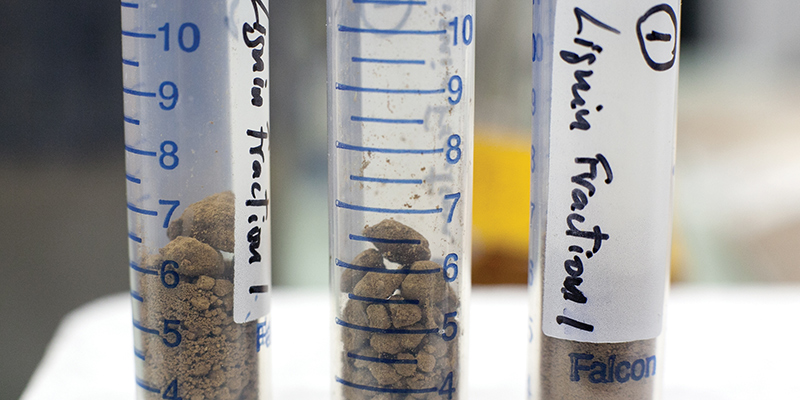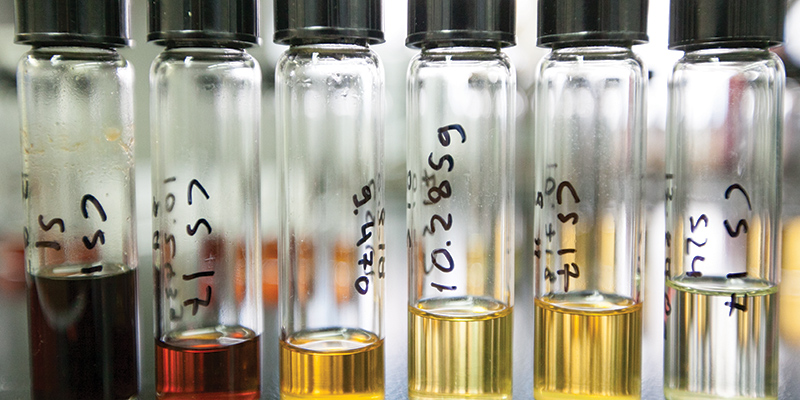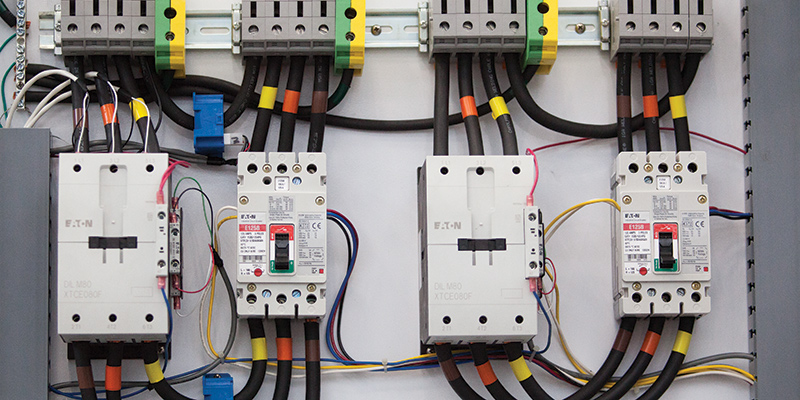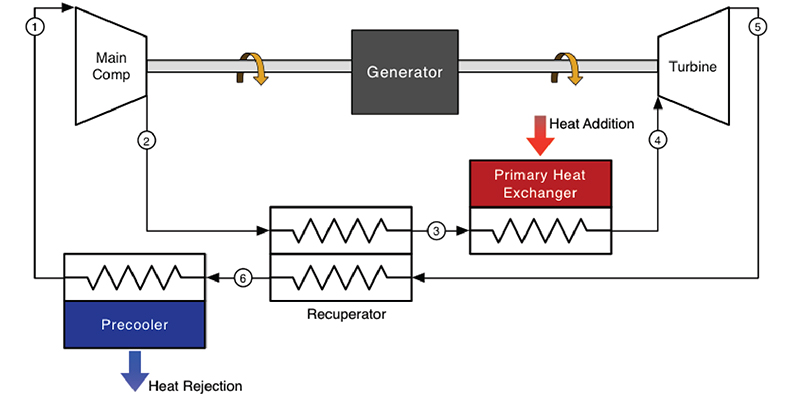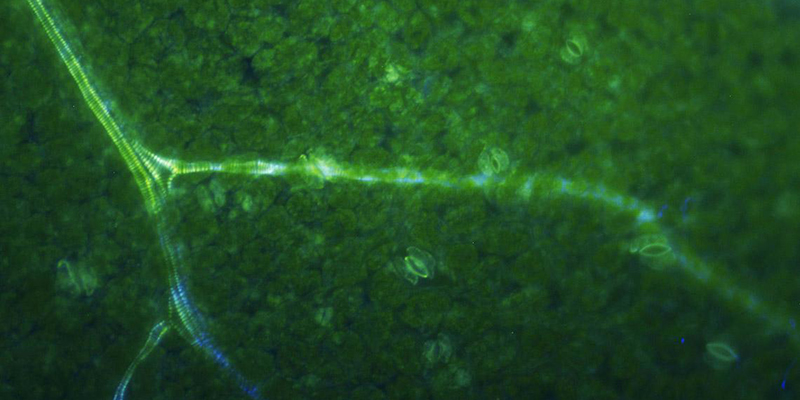When technological innovations improve the way energy is sourced and used, the economy often benefits. The Wisconsin Energy Institute (WEI) technologies listed below could offer new competitive advantages and products for a number of multi-billion dollar industries in Wisconsin and beyond.
Technology Highlights
Biomass-Derived Aromatics
Lignin comprises about 30 percent of most biomass. In most paper and pulping mills, lignin is a near waste product burned for process heat. UW–Madison professor Shannon Stahl, however, has developed a novel way to convert lignin into high-value chemicals.
Engineered Softwood
Softwoods are well suited for use in paper and biofuel industries but are more difficult to deconstruct than hardwoods. UW–Madison professor of biochemistry John Ralph and collaborators have demonstrated the potential for softwoods to process more easily if engineered to incorporate key features of hardwoods.
GVL
Efficiently extracting sugars from biomass is key to producing cost-effective fuels and chemicals from plants. UW-Madison professor of chemical and biological engineering Jim Dumesic has developed a new method for extracting sugars that works with a wide variety of biomass and avoids the use of expensive chemicals.
Microgrids
Microgrids are small, self-contained electric-power grids with the capability to connect and disconnect seamlessly from the traditional grid.
Supercritical CO2 Gas Turbines
Traditional power plants generate electricity by combusting fuel to heat water into steam, which drives a steam turbine to generate electricity. UW–Madison professor Mark Anderson is studying supercritical carbon dioxide – a fluid with qualities of both a liquid and a gas – to potentially replace those steam turbines.
Zip-Lignin™
Lignin, a major component of plant cell wall, is the most difficult part of the plant to break down. UW–Madison professor of biochemistry John Ralph and his team discovered a way to introduce weak bonds, or "zips," into the lignin polymer, which would make it much easier and cheaper to break apart.

